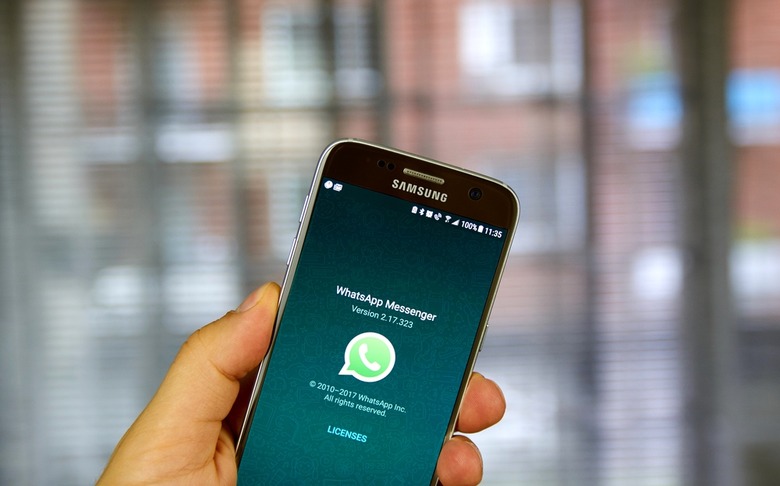WhatsApp Cofounder Acknowledges 'I Am A Sellout' For Going To Work For Facebook
"I am a sellout. I acknowledge that."
WhatsApp cofounder Brian Acton, dressed in a WhatsApp baseball cap and T-shirt, said those words while sitting down with a Forbes reporter in the cafe of the Four Seasons hotel in Palo Alto as part of an interview offering something we rarely get a look at. The deepest inner-workings of Facebook, the largest social network on the planet, and just how aggressive it's become about squeezing every last dime it can out of every channel big and small available to it via directives that come straight from the top.
One of the things you're left with after reading through Acton's Forbes interview that's been rocketing around the web today is that he seems to have at least an element of regret, such as when he laments the fact that "I sold my users' privacy to a larger benefit." Sure, it's easy to sarcastically play a sad violin for a guy worth $3.6 billion who's unhappy with how he made his money, but the interesting thing about this interview is that it's come out today. Just a couple of days after Instagram's cofounders surprisingly left Facebook all of a sudden, likewise (or so say the chattering classes) over a perceived irreparable rift with management.
Acton says he only had about a dozen or so meetings with Mark Zuckerberg, who seemed nonplussed that WhatsApp was insistent on autonomy within Facebook. Snapped Zuck, WhatsApp was just another "a product group to him, like Instagram."
There were incrementally tougher fights over WhatsApp's encryption and the need (as FB management saw it) to monetize it more. "For his part," the Forbes account reads, "Acton had proposed monetizing WhatsApp through a metered-user model, charging, say, a tenth of a penny after a certain large number of free messages were used up. 'You build it once, it runs everywhere in every country,' Acton says. 'You don't need a sophisticated sales force. It's a very simple business.'"
Facebook COO Sheryl Sandberg was dismissive. It won't scale, she told him.
Acton called her out, thinking what she really meant was that idea won't make Facebook enough money. "I was like, 'No, you don't mean that it won't scale,'" Acton continues in the piece. "You mean it won't make as much money as . . . ,' and she kind of hemmed and hawed a little. And we moved on. I think I made my point. . . . They are businesspeople, they are good businesspeople. They just represent a set of business practices, principles and ethics, and policies that I don't necessarily agree with."
Probably the most unnecessarily sad moment is the recounting of a meeting between Acton and Zuckerberg. A lawyer, of course, was likewise on hand in Zuck's office. Acton and WhatsApp cofounder Jan Koum had a clause in their agreement with Facebook saying they could take the full allocation of stock due them if Facebook started trying to ram through monetization of WhatsApp without their consent. Acton believed those efforts had begun, which is what this meeting was about. Facebook's legal team said no, not so fast. We're only "exploring," not implementing these monetization plans.
Acton decided, you know what, I've had enough.
Zuckerberg told him during that meeting: "This is probably the last time you'll ever talk to me."
"Acton's account of what happened at WhatsApp — and Facebook's plans for it — provides a rare founder's-level window into a company that's at once the global arbiter of privacy standards and the gatekeeper of facts, while also increasingly straying from its entrepreneurial roots," the Forbes account reads. "It's also a story any idealistic entrepreneur can identify with: What happens when you build something incredible and then sell it to someone with far different plans for your baby?"
Now we know.
